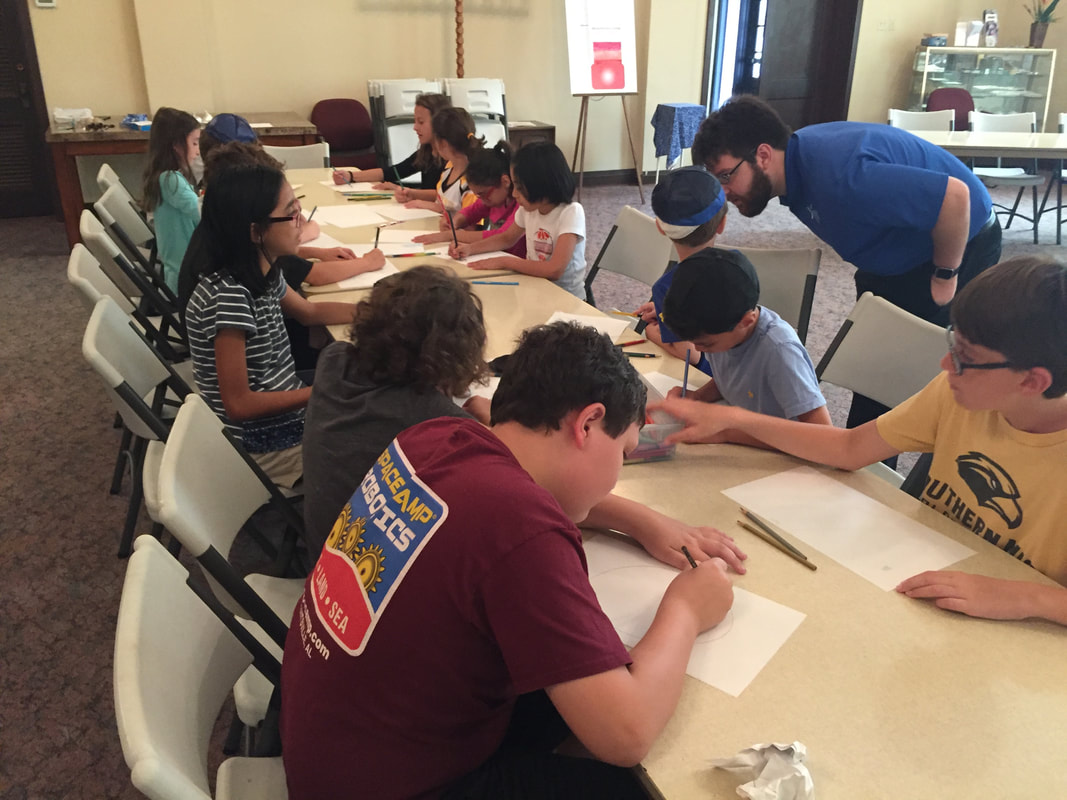Return to Education Newsletter main page! |
Teamwork Makes the Dream Work: The Benefits of Group Work in the Classroom
By Harrison Bleiberg, ISJL Education Fellow
“No one accomplishes anything in this life on his or her own. Even when we stare in awe at what might appear to be a solitary feat - like climbing to the top of a mountain alone - there is invisible support. There are loved ones at home who cherish the adventure. A mentor to teach. A colleague with whom the experience can be shared. And unseen magic too.” -Allan Hamilton, The Scalpel and the Soul: Encounters with Surgery, the Supernatural, and the Power of Hope While we may not be climbing any literal mountains in religious school, many of us are not strangers to tasks that may seem overwhelming or insurmountable. At the ISJL, we originally implemented our vision for the ed program based on a secular school model. However, while the concept for our curriculum may be based on secular schooling, many religious school models differ sharply from a typical secular school setup: meeting once a week for a relatively short time, more relaxed attendance policies, less thoroughly trained teachers (if at all), and, of course, lack of student discipline. Simply put, students tend not to take religious school as seriously. Because of this trend, many teachers come to us asking about ways to get their students more involved in the classroom. One of the most common suggestions we offer, and we see implemented with success, is the introduction of group projects in the classroom. Group projects allow students to take ownership of the subject matter in a way that typical instruction cannot. Working towards a common goal can be a great way to keep students engaged. During a group project, students may even forget that they are supposed to be learning! Group projects within the classroom have a myriad of benefits beyond merely keeping students engaged, however. Collaboration within a group allows students to teach each other material, reinforcing concepts beyond basic instruction. Students enjoy learning from other students; it gives both students and teachers a break from typical classroom instruction that can feel refreshing and effective. Other benefits of group work in your classroom include teaching time management, communication, collaboration, and leadership skills. Skills like these are often difficult to teach in a traditional setting, so there is no better way to teach such skills than giving students real-life exposure to challenges that require collaboration and communication. Skills that are indirectly taught through group work are effective and relevant, even beyond the classroom. Often, the results of group work are greater than the sum of its parts. There is nothing quite like seeing your class come together and work on some great project that can be shown off in your community! Nearly any classroom lesson can be adapted to include more group work or projects. If you’d like some ideas on how to implement group projects into your lessons, feel free and contact your Fellow! |
- Home
- WHO WE ARE
-
WHAT WE DO
- PODCAST
- Conference >
- Education >
-
CULTURE
>
- Culture Overview
- Cultural Programming >
-
History
>
-
Encyclopedia of Southern Jewish Communities
>
- Alabama Encyclopedia
- Arkansas Encyclopedia
- Georgia Encyclopedia
- Florida Encyclopedia
- Kentucky Encyclopedia
- Louisiana Encyclopedia
- Mississippi Encyclopedia
- North Carolina Encyclopedia
- Oklahoma Encyclopedia
- South Carolina Encyclopedia
- Tennessee Encyclopedia
- Texas Encyclopedia
- Virginia Encyclopedia
- Encyclopedia Credits
- Oral History
-
Encyclopedia of Southern Jewish Communities
>
- SPIRITUALITY >
- DONATE
- Shalom Y'all
- Strategic Plan
- Southern & Jewish Blog
- Calendar
- Virtual Press Kit
|
©2024 Goldring/Woldenberg Institute of Southern Jewish Life
|

